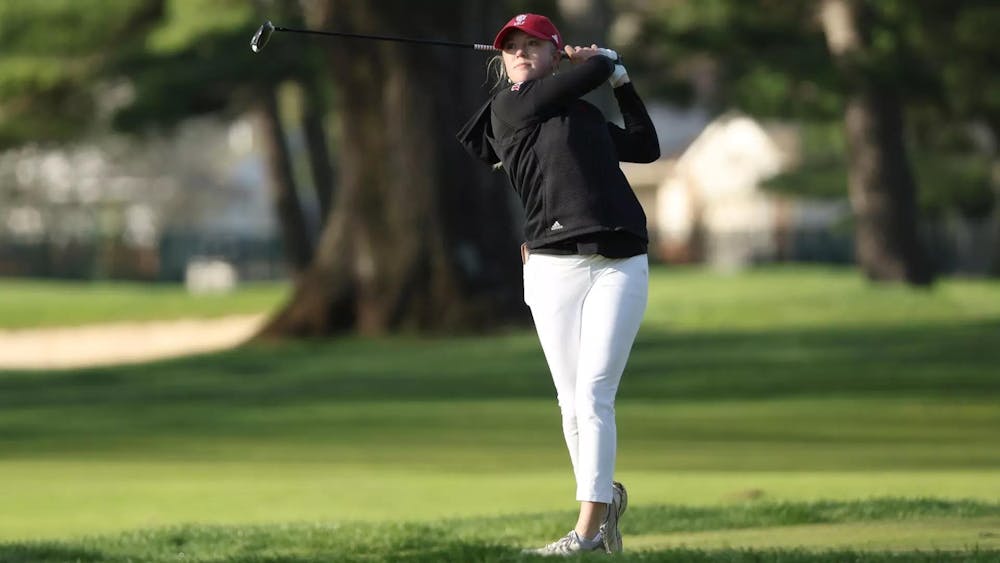It seems the second time is a charm for IU's digital music library. \nThe University applied for a grant from the National Science Foundation and the National Endowment for the Humanities two years in a row. IU found out this week it will receive the $3 million grant for digital music library research.\n"We received the funding because we're building on successes that we've had in the past, particularly with Variations," said Kristine Brancolini, director of digital libraries. "We're very proud of this grant because it capitalizes on our expertise, particularly in music here at IU."\nVariations is a computerized collection of about 10,000 hours of audio files only available in IU's music library. Started in 1996, Variations has been popular with music students. \n"The variations project was a first of its kind and marked IU's status as a leader in the use of information technology in the field of music," said associate music professor Eric Isaacson.\nIU will use the money to research making the library more available and more interactive.\n "The ultimate goal of the digital music library is to have a user sit down at their computer and search for a piece of music, or a composer, or a type of music -- and be able to get that music in all types of formats," said Jon Dunn, the University Libraries' assistant director of digital libraries. "They should be able to locate a score of the music, sound recordings that are available, find musical notation, and perhaps even video recordings."\nThe University will receive money over the next four years, during which an experimental database for the new digital music library will be established. The database will be based on content from Variations and will be the culmination of the faculty research on digital libraries. \nDuring the research, Variations will continue operating normally. The new system will use Internet 2 -- a high-speed network now being offered to many universities around the world. IU serves as the network operations center of Internet 2.\nThe database will also be available to researchers, certain faculty, and some remote sites around the world. The remote sites include locations in other U.S. universities, and range as far as Oxford University and Waseda University in Japan.\nThe projects brings together faculty from various departments at IU. Music experts, librarians, technicians, researchers and administrative staff will all devote more of their time to research for the music library. They will investigate ways to make the library more interactive and take in-depth looks at copyright law, human-computer interaction and incorporation into teaching and learning.\n"We have investigators from the Main Library and from the music library, so there is a good bit of collaboration already in place," said Gerry Bernbom, director of research and academic computing for University Information Technology Services. "I think the level of collaboration is going to increase even more."\nDunn will be working with a team of programmers on software design and development for the music library. Andrew Dillon, associate professor of information science, computer science and informatics, will be researching human-computer interaction. Law professor Kenneth Crews will research legal issues concerning copyrights and content. Isaacson said he is seeking ways to incorporate the new digital music library into his curriculum. \n"Doing listening activities with actual pieces in a class full of students is difficult," Isaacson said. "It would be better if a student could be sitting at a computer, listening to the piece and answering questions about it, which can be immediately judged."\nThe University hasn't yet nailed down details on how the grant will be implemented.\n"How do we design for optimal use? What kind of features and functionality do music students want? What makes the tools and technologies easy to use?" asked School of Library and Information Science Dean Blaise Cronin. \nTo better answer these questions, Suzanne Thorin, dean of the University Libraries, said use of the current digital music library system is being monitored. Thorin cited close collaboration between faculty researchers and students as a key for success. The faculty researchers will be relying on user-testing labs and surveys to get input on the interface.\nBrancolini said non-musical content for digital libraries will not forgotten. \n"A lot of things that we learn during this project will generalize to other things that we are working on," Brancolini said. "We'll learn a lot that we can apply to other digital library work, especially regarding user interface design and usability."\nThe digital library can be accessed at dlib.indiana.edu.
Digital libraries get $3 million boost
Grant will be used to advance research on music collection
Get stories like this in your inbox
Subscribe





